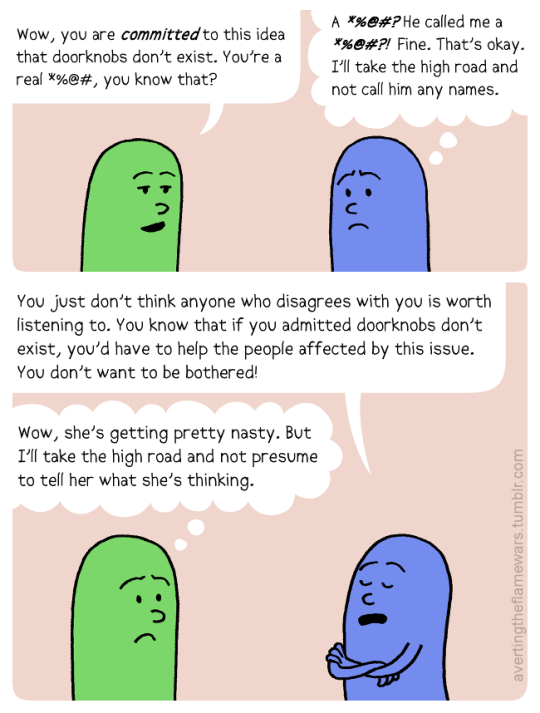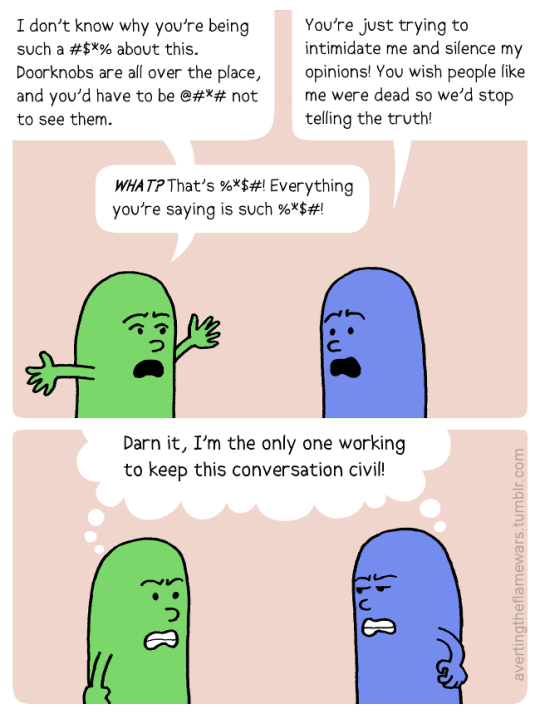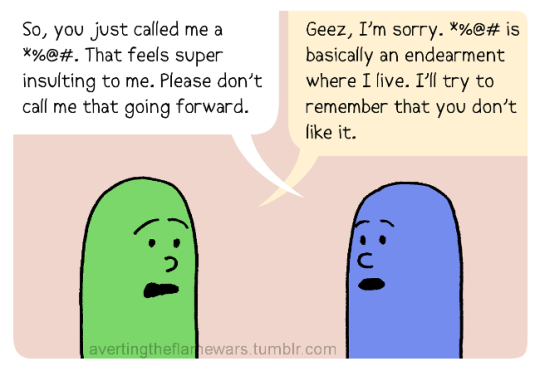#deescalation
In online disagreements, it’s easy to feel like you’re the only one making an effort to be nice. Like you’re working hard to talk respectfully, but everyone else keeps sabotaging you.

All people have to do is be a tiny bit civil. That shouldn’t be complicated, right?
The thing is, it’s pretty complicated.
Here are a few examples of how you might try to convey respect in choosing your words:
- empathizing with other people’s thoughts and feelings
- not making assumptions about people’s thoughts and feelings
- avoiding swearing & overly casual language
- avoiding pompous, academically elite language
- being straightforward & honest
- refraining from saying negative things
- carefully avoiding statements with any kind of subtle bigotry
- not walking on eggshells with someone just because you have privileges they don’t
- refraining from logical fallacies and generalizations
- refraining from nitpicking and hair-splitting
See how this can get a little… contradictory? Differences in how you prioritize these things can alienate people who grew up in the same household.
Now imagine folks from radically different social circles, religious backgrounds, and countries, all trying to correctly guess what everyone else will read as respectful. That’s the internet on a good day. We can all work hard to treat each other right, and it can still blow up in our faces.
People on both sides can take measures to de-escalate a conflict, and it can escalate anyway because they perceive the conflict differently.


This can leave you feeling frustrated, self-righteous, and put-upon. All dry kindling in the world of flame wars.
It helps to figure out what exactly makes you feel respected. Then you can ask people to treat you the way you want, in a specific and constructive way.

And when you can articulate how you want to be treated, it’s easier to remember that others might want to be treated differently.
